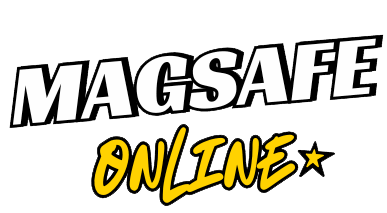In an age where health information is everywhere — social media, blogs, news sites, apps — not all sources are created equal. For many people, the biggest hurdle isn’t access to health content, but making sense of it. That’s where platforms like Wheon.com Health News aim to fill a gap: bringing reliable, understandable, and usable health journalism to a general audience.
What Is Wheon.com Health News?
Wheon.com is (or purports to be) a digital media platform covering a variety of topics, including technology, gaming, finance, lifestyle—and health. The “Health News” section is positioned as the branch of the site that offers:
- Summaries of recent medical research
- Wellness tips and lifestyle advice
- Explanations of innovations in healthcare and technology
- Mental health coverage
- Nutrition and fitness guidance
The goal is to translate complex findings (from journals, studies, health agencies) into clearer language, so ordinary readers can make more informed decisions about their health. therefinedwolf.com+2Deccan Herald+2
Why Platforms Like Wheon Matter
- Bridging the Knowledge Gap
Many scientific and medical studies are dense, technical, and behind paywalls. Health-news intermediaries can distill key findings (the “what,” “why,” and “so what”) for nonexperts. - Encouraging Health Literacy
Understanding basics of risk, evidence, prevention, and tradeoffs helps people better engage with health decisions—whether about diet, exercise, screening, or treatments. - Context & Perspective
Purely reporting a new study may mislead readers if they don’t see caveats—sample size, population, conflicts of interest, or how it fits with existing evidence. A good health news platform adds that context. - Motivation & Practical Advice
Health behavior change is harder than knowing what’s good. Platforms that combine insight + actionable steps are more useful than those that just present theory.
Strengths and Challenges of Wheon.com Health News
Strengths
- Simplified, reader-friendly writing: Wheon aims for clarity, avoiding excessive jargon so readers can grasp ideas without needing a medical dictionary. therefinedwolf.com+3World Map Quest+3My Blog+3
- Balanced wellness coverage: It covers both “soft” topics (mental health, stress, habits) and “hard” science (medical breakthroughs), giving a more holistic perspective. Divine Glam Tips+2therefinedwolf.com+2
- Timely updates: With health rapidly evolving (e.g. in pandemic, diagnostics, treatments), having a source that tries to keep pace is valuable. therefinedwolf.com+3Deccan Herald+3World Map Quest+3
- Accessibility: For nonexperts, this kind of platform lowers the barrier to engaging with health topics.
Challenges & Pitfalls
- Verification and oversight
If the site does not have strong editorial or medical review, there is risk of inaccuracies, overstatements, or oversimplifications. - Sensationalism vs. nuance
In pursuit of engagement, headlines may lean dramatic or oversell benefits. Readers might come away with inflated expectations. - Overgeneralization
Medical findings often depend on context (age, underlying health, demographics). Advice that works for one group might not apply to everyone. - Lack of deep detail
By their nature, summaries omit many methodological subtleties. The “devil is in the details” for high-stakes decisions (medications, surgeries). - Monetization pressures
Sometimes health sites push supplements, affiliate links, or sponsors. That can shade the neutrality of the content.
How to Use Wheon.com Health News (or Similar Platforms) Wisely
To get the benefit while minimizing risks, here’s a guide for readers:
- Use it as a starting point
Think of a Wheon article as your introduction to a topic—not your final authority. - Check the original sources
A well-written summary should link or cite the original study, journal, or expert authority. Follow those links when the stakes are high. - Compare with reputable health authorities
Use sites like the World Health Organization (WHO), Centers for Disease Control and Prevention (CDC), National Institutes of Health (NIH), or major medical societies to see whether the broader consensus aligns. - Look for transparency
Good health news articles mention limitations, conflicts of interest, sample sizes, and scope. Be wary if none of that is discussed. - Talk with a professional
Especially if new advice affects your health decisions (diet, medications, exercise in presence of disease), consult a doctor or qualified specialist. - Test slowly, monitor effects
If you try a new habit or tip, observe how your body responds. Don’t leap to extremes overnight.
Sample Topics You’ll Find (or Should Find) in Wheon.com Health News
A few areas where such a platform can really add value:
- Emerging diagnostics & technologies
AI in medical imaging, wearable sensors, voice / speech analysis for disease detection. - Nutrition & diet research
E.g. effects of intermittent fasting, plant-based diets, microbiome, food timing. - Mental health & stress resilience
Mindfulness, sleep, coping strategies for anxiety or depression. - Preventive health & lifestyle interventions
Tips on exercise, sleep, posture, ergonomics, injury prevention. - Public health & epidemiology updates
News about outbreaks, vaccines, environmental health risks. - Patient stories & real-world applications
How people navigate health challenges, lessons learned, inspirational journeys.
The Road Ahead: Opportunities for Wheon.com
To grow and sustain trust, Wheon (or any health news platform) can consider:
- Medical or expert review panels
Have physicians, researchers, or health professionals vet content or flag concerns. - Multimedia content
Podcasts, short videos, infographics—help reach people with different learning styles. - Interactive tools
Risk calculators, symptom checkers, quizzes to personalize content. - Regional adaptation
Health advice often needs cultural, dietary, environmental adaptation. Tailor for audiences (e.g. Pakistan, India, etc.) - Transparency reports
Publish methodology about how content is sourced, reviewed, updated, and corrected. - Engaging the community
Encourage reader questions, feedback, guest stories, or moderated expert Q&A sessions.

